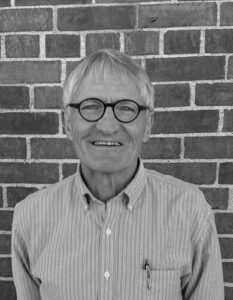You don’t have to have it all figured out
Regarding the Journey

Lesslee Dort
Graduation season is upon us, and with it comes proud photos, emotional speeches, and the universal question directed at every high school senior: “So, what are you going to do now?”
It’s a well-meaning question. Yet, I wince a little each time I hear it. Not because I think students shouldn’t dream or plan, but because I wonder how they’re supposed to choose at all. In a world of nearly infinite options, how do you pick a path when you haven’t even lived outside your childhood bedroom yet? Moreover, how do you do it with everyone watching?
I look at today’s high school graduates with admiration and compassion. Do they know they face a nearly limitless list of possibilities? College, gap year, trade school, entrepreneurship, creative careers, military service, internships, going abroad, starting a nonprofit … the list goes on. It’s both amazing and overwhelming.
According to a recent survey by the American Psychological Association, nearly 80% of today’s teens report feeling stressed about the future, particularly about choosing the “right” path after high school. And it’s no wonder when you consider they’re being asked to commit to a direction without the lived experience to understand what that direction truly means or entails.
Many adults spend years, even decades, reflecting on the choices we didn’t even know we had. That’s the irony that comes with aging: the moment you finally see how many paths were possible is often the moment when some of those doors have already closed.
That theme is at the heart of Matt Haig’s novel, “The Midnight Library.” The main character, Nora, finds herself in a magical library during one of life’s crossroads moments. Each book on the shelf tells the story of an alternate life choice she had and, therefore, a different version of her life. There’s one where she became a rock star. One where she never left her hometown. One where she became a mother. Some of these lives are full of joy. Others are painful. But all of them answer the same persistent question, “What if?” Through these imagined lives, she learns that no path is perfect, no life free of grief or compromise.
I think of this book often, especially when I approach a young person at the start of adulthood. I want to tell them: “You will make decisions you’ll one day question. That’s okay. You’ll make others you’ll be grateful for, even if they came by accident. That’s okay, too. What matters isn’t avoiding every mistake; it’s staying curious and open-hearted about where your choices take you.” Because perhaps the choices we make aren’t the point. Rather, we should be focused on how we live our lives, not the profession we select.
What’s more, we don’t always get to choose freely. Sometimes, choices are made for us — by financial realities, family expectations, geography, culture, or health. Nobel laureate Herbert Simon’s theory of bounded rationality explains this well. We make decisions based on limited knowledge, time, and resources — not on some perfect bird’s-eye view of all possible futures.
When I was younger, college was the only path forward. Period. It wasn’t up for discussion. It didn’t matter what major I selected. Getting a degree and landing a stable job was the point. Travel? Start a business? Explore the arts? Join the Peace Corps? Those weren’t even blips on my radar. It didn’t occur to me that I could ask bigger questions or look in other directions. So, while I didn’t study abroad in college, I did learn how to sit with grief, entertain myself, how to start over, and how to forgive people who never apologized.
I may still occasionally wonder, “Would I do it the same in today’s seemingly limitless world of options?” Who knows? I do know that success doesn’t come from choosing perfectly — it comes from showing up fully to whatever you’ve chosen.
Maybe instead of asking graduates what their next step is, let’s make sure they know they don’t need to have it all figured out. Relieve some pressure. They don’t need to pick the “right” forever door. Yes, they need to become independent and self-reliant. But they can also choose something that feels interesting, useful, or joyful. After all, our lives are shaped by more than what we did–they’re shaped by what we endured, what we adapted to, and what we outgrew. These are the real morsels of a life well-lived.
We all need to remember to pay attention. Be willing to pivot. Know that even if our life looks nothing like what we planned, it can still be rich and beautiful and meaningful.
Lesslee Dort is a writer who hopes her essays and guided journals inspire readers to pause, reflect, and connect with themselves and those around them. Copies of her books are available for purchase at The Alpena News and Amazon. Reach Lesslee via email at lesslee@regardingthejourney.com.




